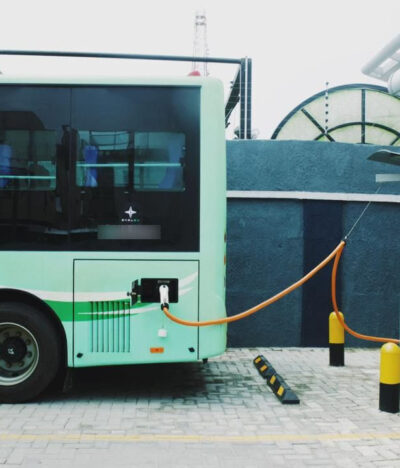The world is racing toward a cleaner, more efficient transportation future — and Nigeria cannot afford to be left behind. Electric Vehicles (EVs) are no longer just futuristic ideas; they are practical, cost-effective, and essential for addressing our environmental and economic challenges.
And here’s the good news: We are not alone in this journey.
The president of African Development Bank, DR Akinwunmi Adesina and the Federal Government of Nigeria, through a recent visit by the Honourable Minister of Industry, Trade, and Investment, Dr Jumoke Oduwole, have shown strong commitment to supporting the EV revolution. This backing means real opportunities for investment, infrastructure, and policy frameworks that make EV adoption easier and faster.
Combatting Rising Fuel Costs
Fuel prices in Nigeria have surged dramatically in recent years, putting pressure on households and businesses. EVs run on electricity, which is significantly cheaper than petrol or diesel per kilometer.
Bottom line: Every kilometer in an EV costs far less, freeing up income for other needs.
Boosting Energy Independence
Nigeria spends billions annually importing refined petroleum products. By adopting EVs and charging them using locally generated electricity (including solar), we can reduce our dependence on imported fuel and strengthen our economy.
Job Creation and Industrial Growth
An EV future is also an economic opportunity. From battery manufacturing to charging station networks, EV adoption will:
-
Create thousands of skilled jobs
-
Stimulate local innovation
-
Attract international investment into Nigeria’s green economy
Preparing for Global Shifts
Many countries are already phasing out petrol and diesel cars. By moving early, Nigeria can:
-
Stay competitive in global trade
-
Align with international climate commitments
-
Avoid becoming a dumping ground for obsolete fuel vehicles
The Time Is Now
With the backing of the African Development Bank and the Federal Government, as well as growing private sector interest, Nigeria is positioned to lead Africa’s electric mobility revolution. The endorsement by the National Automotive Design and Development Council, is proof that EVs are now firmly on the national development agenda.
Governments, private investors, and everyday Nigerians all have a role to play in:
-
Supporting EV-friendly policies
-
Investing in charging infrastructure
-
Choosing electric for personal and business transport
Transitioning to EVs is not just about technology — it’s about national progress, economic resilience, and cleaner air for all.




10 Comments
Hello my loved one I want to say that this post is amazing great written and include almost all significant infos I would like to look extra posts like this
Excellent blog here Also your website loads up very fast What web host are you using Can I get your affiliate link to your host I wish my web site loaded up as quickly as yours lol
Your blog is a constant source of inspiration for me. Your passion for your subject matter is palpable, and it’s clear that you pour your heart and soul into every post. Keep up the incredible work!
Wow amazing blog layout How long have you been blogging for you made blogging look easy The overall look of your web site is magnificent as well as the content
hiI like your writing so much share we be in contact more approximately your article on AOL I need a specialist in this area to resolve my problem Maybe that is you Looking ahead to see you
Your blog is a constant source of inspiration for me. Your passion for your subject matter shines through in every post, and it’s clear that you genuinely care about making a positive impact on your readers.
I do not even know how I ended up here but I thought this post was great I dont know who you are but definitely youre going to a famous blogger if you arent already Cheers
Usually I do not read article on blogs however I would like to say that this writeup very compelled me to take a look at and do so Your writing taste has been amazed me Thanks quite nice post
I do agree with all the ideas you have introduced on your post They are very convincing and will definitely work Still the posts are very short for newbies May just you please prolong them a little from subsequent time Thank you for the post
Your writing has a way of resonating with me on a deep level. I appreciate the honesty and authenticity you bring to every post. Thank you for sharing your journey with us.